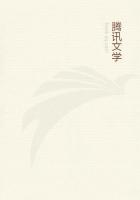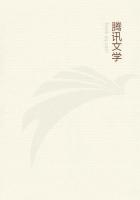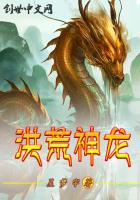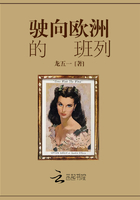Now, the only mutable and progressive portion of law, as we have already seen, is that which concerns property.If, then, you ask what reforms are to be introduced into the right of property? M.
Troplong makes no reply; what progress is to be hoped for? no reply; what is to be the destiny of property in case of universal association? no reply; what is the absolute and what the contingent, what the true and what the false, in property? no reply.M.Troplong favors quiescence and _in statu quo_ in regard to property.What could be more unphilosophical in a progressive philosopher?
Nevertheless, M.Troplong has thought about these things."There are," he says, "many weak points and antiquated ideas in the doctrines of modern authors concerning property: witness the works of MM.Toullier and Duranton." The doctrine of M.Troplong promises, then, strong points, advanced and progressive ideas.
Let us see; let us examine:--
"Man, placed in the presence of matter, is conscious of a power over it, which has been given to him to satisfy the needs of his being.King of inanimate or unintelligent nature, he feels that he has a right to modify it, govern it, and fit it for his use.
There it is, the subject of property, which is legitimate only when exercised over things, never when over persons."M.Troplong is so little of a philosopher, that he does not even know the import of the philosophical terms which he makes a show of using.He says of matter that it is the SUBJECT of property; he should have said the OBJECT.M.Troplong uses the language of the anatomists, who apply the term SUBJECT to the human matter used in their experiments.
This error of our author is repeated farther on: "Liberty, which overcomes matter, the subject of property, &c." The SUBJECT of property is man; its OBJECT is matter.But even this is but a slight mortification; directly we shall have some crucifixions.
Thus, according to the passage just quoted, it is in the conscience and personality of man that the principle of property must be sought.Is there any thing new in this doctrine?
Apparently it never has occurred to those who, since the days of Cicero and Aristotle, and earlier, have maintained that THINGSBELONG TO THE FIRST OCCUPANT, that occupation may be exercised by beings devoid of conscience and personality.
The human personality, though it may be the principle or the subject of property, as matter is the object, is not the CONDITION.Now, it is this condition which we most need to know.So far, M.Troplong tells us no more than his masters, and the figures with which he adorns his style add nothing to the old idea.
Property, then, implies three terms: The subject, the object, and the condition.There is no difficulty in regard to the first two terms.As to the third, the condition of property down to this day, for the Greek as for the Barbarian, has been that of first occupancy.What now would you have it, progressive doctor?
"When man lays hands for the first time upon an object without a master, he performs an act which, among individuals, is of the greatest importance.The thing thus seized and occupied participates, so to speak, in the personality of him who holds it.It becomes sacred, like himself.It is impossible to take it without doing violence to his liberty, or to remove it without rashly invading his person.Diogenes did but express this truth of intuition, when he said: `Stand out of my light!'"Very good! but would the prince of cynics, the very personal and very haughty Diogenes, have had the right to charge another cynic, as rent for this same place in the sunshine, a bone for twenty-four hours of possession? It is that which constitutes the proprietor; it is that which you fail to justify.In reasoning from the human personality and individuality to the right of property, you unconsciously construct a syllogism in which the conclusion includes more than the premises, contrary to the rules laid down by Aristotle.The individuality of the human person proves INDIVIDUAL POSSESSION, originally called _proprietas_, in opposition to collective possession, _communio_.
It gives birth to the distinction between THINE and MINE, true signs of equality, not, by any means, of subordination."From equivocation to equivocation," says M.
Michelet, "property would crawl to the end of the world; man could not limit it, were not he himself its limit.Where they clash, there will be its frontier." In short, individuality of being destroys the hypothesis of communism, but it does not for that reason give birth to domain,--that domain by virtue of which the holder of a thing exercises over the person who takes his place a right of prestation and suzerainty, that has always been identified with property itself.
"Origin of French Law."
Further, that he whose legitimately acquired possession injures nobody cannot be nonsuited without flagrant injustice, is a truth, not of INTUITION, as M.Troplong says, but of INWARDSENSATION, which has nothing to do with property.
To honor one's parents, to be grateful to one's benefactors, to neither kill nor steal,--truths of inward sensation.To obey God rather than men, to render to each that which is his; the whole is greater than a part, a straight line is the shortest road from one point to another,--truths of intuition.All are a priori but the first are felt by the conscience, and imply only a simple act of the soul; the second are perceived by the reason, and imply comparison and relation.In short, the former are sentiments, the latter are ideas.
M.Troplong admits, then, occupancy as a condition of property.
In that, he is in accord with the Roman law, in accord with MM.
Toullier and Duranton; but in his opinion this condition is not the only one, and it is in this particular that his doctrine goes beyond theirs.

